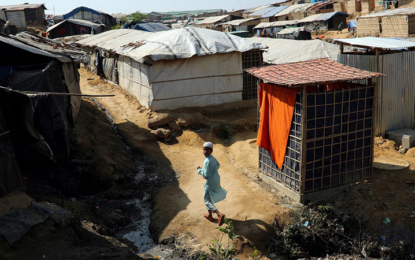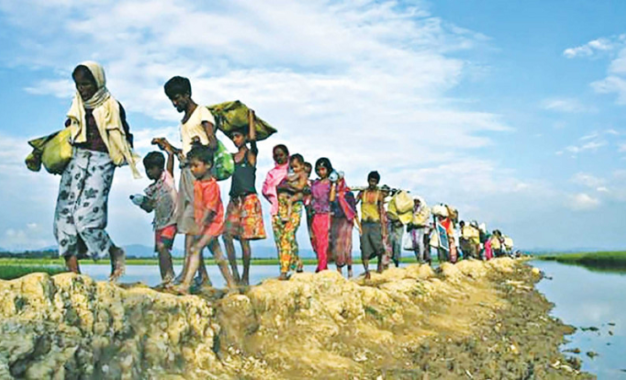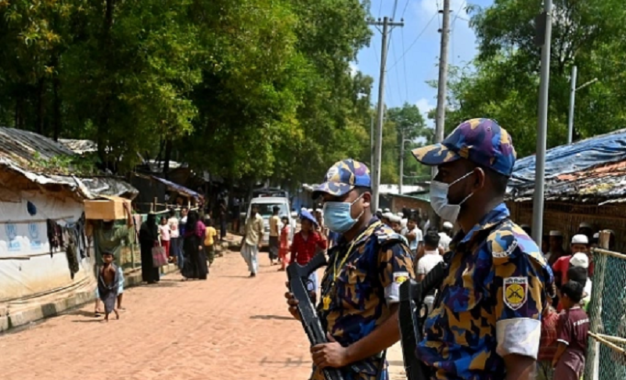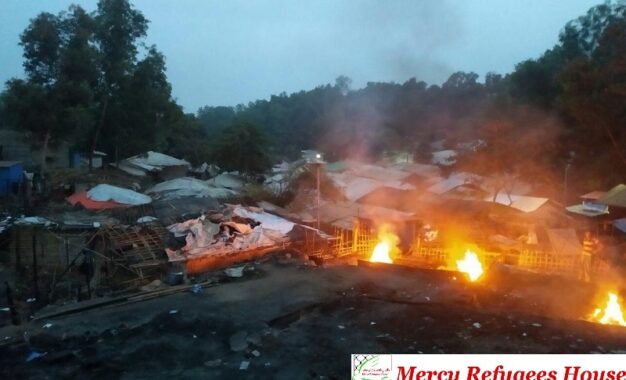Latest News
Dozens of Syrians forced into sexual slavery in derelict Lebanese house
Human Rights, Refugees Issues, Reports, Women

Mercy Refugees House:Tucked in a leafy suburb of the Lebanese town of Jounieh, a short drive from the sparkling Mediterranean, stands a monument to human cruelty.
In this derelict two-story house, 75 Syrian women were forced into sexual slavery, the largest human trafficking network ever uncovered in Lebanon. Here, the women were imprisoned after arriving from their war-torn country, sold for less than $2,000, and forced to have sex more than 10 times a day. Here they were beaten and tortured and electrocuted, and sometimes flogged if they didn’t get enough tips.
The windows and balconies are barred – giant cages where windows are painted black, depriving the women even of sunlight.
The women left the house to get abortions, of which they had about 200. They also left to be treated for venereal diseases, contracted after being forced to have unprotected sex with customers, or to be treated for skin ailments, brought on by their lack of exposure to the sun.
The house, called Chez Maurice, is now empty and sealed with red tape. Underwear and dirty clothes are strewn by the entrance, coffee spilled on the ground from the police raid.
Some windows have been left ajar, offering a glimpse into the lives of women held here for so long, some of whom were underaged when they arrived in Lebanon. The stench of rotting fruit rises from the dark interior, where clothes and half-empty cigarette packs are scattered about dingy rooms and beds with metal bars.
“These 75 women were saved from slavery, real slavery in this day and age with all the meaning of the word,” said Col Joseph Mousallam, spokesman for the Lebanese police. “They had lost every aspect of their freedom, over their bodies and even their thoughts. It was real slavery.”
 Details of how the women were trafficked, the abuse they suffered, the architecture of the network and how it was eventually brought down were gleaned from interviews with Lebanese police and security officials, and a copy of the indictment in the case obtained by the Guardian. The names of some women were provided in the indictment, but their identities have been withheld.
Details of how the women were trafficked, the abuse they suffered, the architecture of the network and how it was eventually brought down were gleaned from interviews with Lebanese police and security officials, and a copy of the indictment in the case obtained by the Guardian. The names of some women were provided in the indictment, but their identities have been withheld.
The indictment charges 23 individuals with the crime of forming a human trafficking network, physically and psychologically torturing the women, imprisoning them and forcing them into prostitution.
It details the roles of the individuals accused of running the human trafficking network, including Fawaz Ali al-Hasan, the head of the network, and Imad al-Rihawi, a Syrian man alleged by police officials to be the enforcer of the group and who officials say is still on the run. Al-Akhbar, a Lebanese newspaper with close ties to the Syrian government of Bashar al-Assad, said he was a former interrogator in the feared Syrian air force intelligence service. A security source familiar with the investigation later confirmed the claim to the Guardian.
The Lebanese authorities have requested Rihawi’s extradition if he is arrested in Syria, hinting that he may have returned to his home country following the crackdown on his network.
Police and judicial officials say the women were trafficked from war-torn Syria and Iraq, recruited by agents of the network for supposedly legitimate jobs such as restaurant workers, before being imprisoned at Chez Maurice.
“They were perhaps looking for weaker families, where nobody is going to ask about the woman, such as if her father died in the war,” said Mousallam. “They are hunters. They did not for a moment treat them as humans.”
Those who resisted working as prostitutes were raped and beaten, and then forced to have unprotected sex with customers. They were sometimes electrocuted or whipped, in an environment that judges described as “a journey to hell”.
The indictment said the women were forced to have sex with customers more than 10 times a day, making between $30-70 per session, all of which was taken away by the guards, including any tips, in effect making them sex slaves.
One of the women was “sold” by her husband to an agent in the network for $4,500. The others were bought by the agents for $1,000-$1,500. The agents would send pictures of their prospective catch by WhatsApp to the network’s top echelons, earning $2,500 per woman if the deal went through.
According to police those women who became pregnant were taken to a clinic in the northern Beirut suburb of Dekwaneh, run by a well-known doctor in the area called Riad Bulos. Bulos is alleged to have performed some 200 abortions on women in the network over four years, earning between $200 and $300 for each operation. He has been charged with carrying out abortions, a criminal offence in Lebanon. The Lebanese health minister said Bulos ought to “rot” in prison…
Amazon Sponsorship
Recent Posts
Jul 29, 2023
It has been close to six years since hundreds of thousands of Rohingya faced a deadly genocide by Myanmar’s military and fled the country in search of protection and refuge in neighbouring Bangladesh. The Rohingya population has been undergoing persecution, discrimination, arbitrary arrests, and atrocities in Myanmar for over seven decades. Their condition is alarmingly […]



















